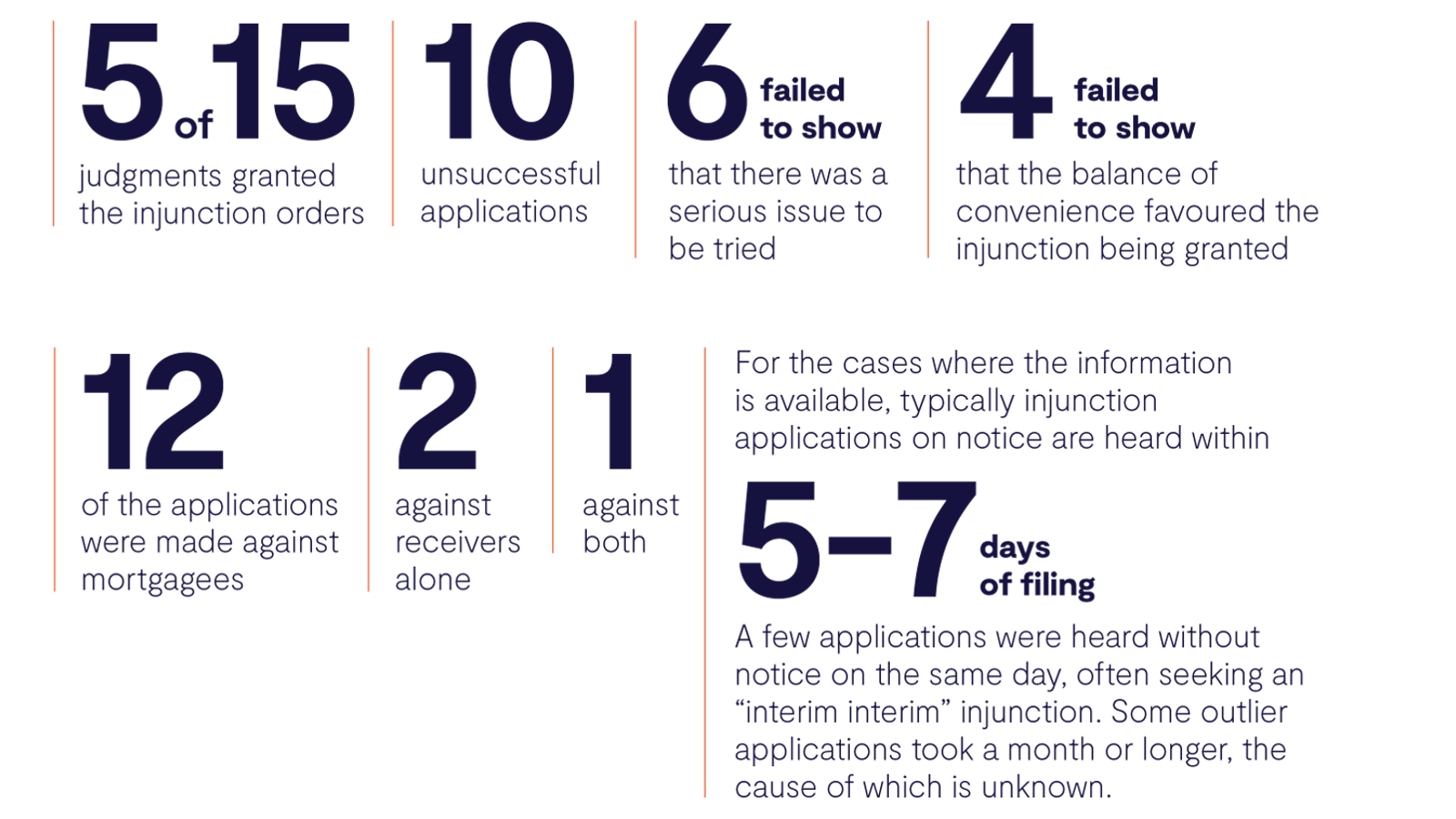Contents
Debtors will often apply for an injunction to stop a mortgagee sale, a receivership sale, or the entire receivership. How does that happen and when will an application succeed?
Interim injunction applications are a recurring feature for mortgagees and receivers. They are typically the last roll of the dice for a desperate debtor or its guarantor. An injunction application that is not managed correctly can be significantly disruptive to a sale process, and potentially threaten settlement.
Our paper, developed for the 19th Annual Corporate Restructuring and Insolvency Conference, looks at:
- The practical process of getting an injunction (notice requirements, undertakings as to damages, interim protection etc).
- The legal threshold – how hard is it for an applicant to get its case across the line?
- The type of errors, issues and concerns that will cause a Court to intervene in an enforcement process. What might debtors try to argue and when might those arguments succeed?
- Practically, how does a mortgagee or receiver respond to this type of application?
We address these points through the lens of a number of recent case law examples. Click the button below to access our paper.


























































































